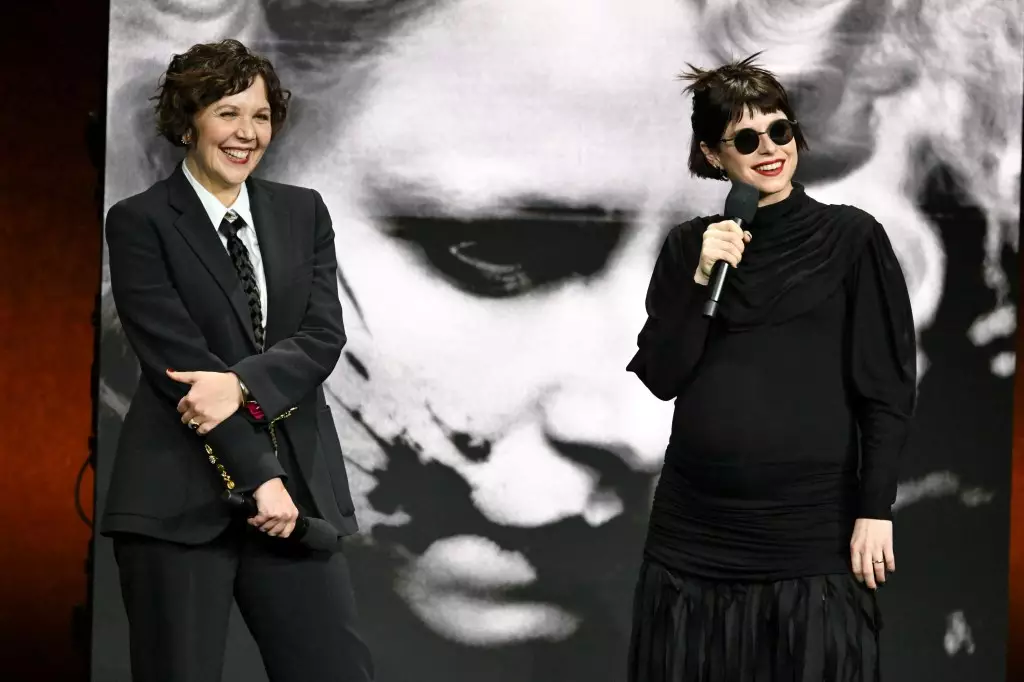Maggie Gyllenhaal’s next cinematic venture, “The Bride,” is shaping up to be a transformative exploration of classic horror motifs with the heart and complexity of a modern love story. Set against the backdrop of 1930s Chicago, this ambitious $100 million feature gives a new perspective to an iconic tale. The film revolves around the infamous Frankenstein and his quest to create a companion for his monster, which ultimately leads to the resurrection of a murdered woman as The Bride, played by Jessie Buckley. Rather than merely reiterating past narratives, Gyllenhaal’s screenplay seems poised to incite both societal reflection and emotional investment—a daring endeavor that could redefine the genre.
Science Meets Romance in a Gripping Narrative
The initial footage unveiled at CinemaCon offers glimpses of the film’s intriguing mix of romance and horror. Buckley’s evocative portrayal hints at a character who defies the traditional role of a passive victim from earlier adaptations. The scene displaying The Bride’s ominous revival, intermingled with a casual fatality, encapsulates the film’s thrilling tension. Meanwhile, Christian Bale’s monster, uttering, “Til death do us part,” introduces an unsettling yet compelling narrative of love with dark undertones. Buckley emphasizes the “electrical language” of Gyllenhaal’s script, suggesting an innovative approach that might redefine the audience’s relationship with cinematic narratives.
Reclaiming the Feminine Voice in Horror
One of the most refreshing aspects of “The Bride” lies in its reimagining of the titular character, who in previous adaptations often existed only as an ethereal shadow. Gyllenhaal’s ambition to resurrect the Bride not merely as a creature of tragedy, but as an empowered individual pursuing love and understanding, speaks volumes about contemporary feminist narratives in film. Buckley refers to their love story as “the punkest love that’s ever existed,” drawing parallels to iconic couples like Bonnie and Clyde. This reinvigorated focus on powerful, autonomous characters is essential in an era where the portrayal of women in film is being intensively scrutinized.
From Streaming Gamble to Theatrical Triumph
Originally set to be a Netflix title, “The Bride” has transitioned to a Warner Bros. project, extending its reach from the confines of streaming to a theatrical release. The initial resistance from Netflix regarding the filming location in New York highlighted the creative constraints that can often stifle artistic vision. Gyllenhaal’s commitment to develop the film in IMAX signifies her desire to present the film as a bold spectacle, something that transcends typical bounds of horror and romance genres.
With a notable cast that includes industry powerhouses like Annette Bening and Penélope Cruz alongside Buckley and Bale, the film is already garnering attention for its potential both narratively and visually. Gyllenhaal’s recognition of the monsters as heroes reflects a nuanced understanding of storytelling that is refreshingly intricate.
In a realm often cluttered with formulaic narratives, “The Bride” stands out with its promise of depth, complexity, and an unforgettable love story that transgresses conventional genres. A film that champions the monstrous in a way that challenges viewers—not merely to feel, but to think—is nothing short of groundbreaking. As its release date moves to March 6, 2026, anticipation continues to build around what might become a hallmark in horror romance.

Leave a Reply